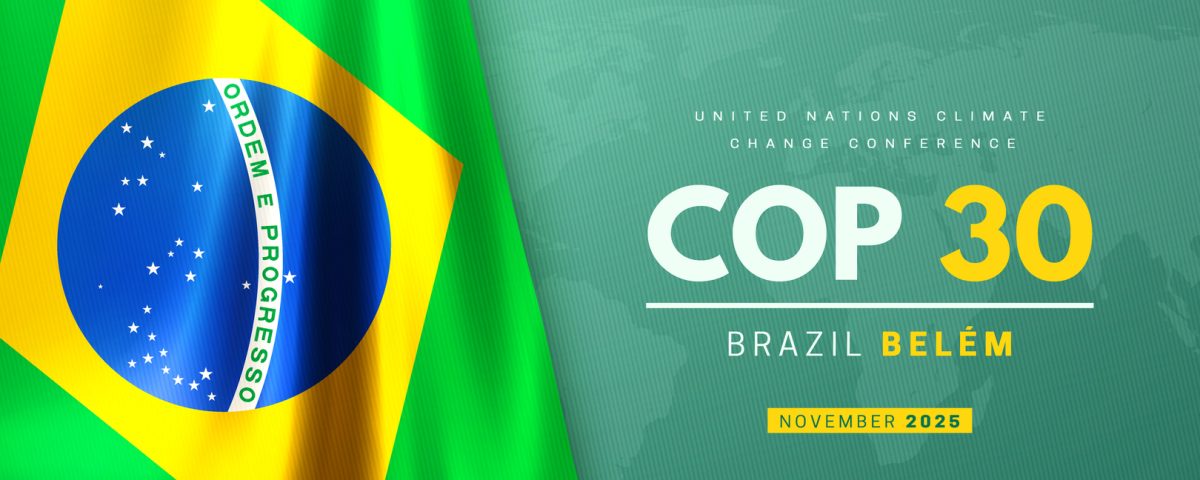Muskoka on the Global Stage: Why COP30 Matters at Home
By Peter Johnston | October 25, 2025

As the world prepares for COP30 in Brazil, the urgency of the climate crisis is no longer a distant concern—it’s unfolding right here in Muskoka. The shifts in temperature, rainfall, and extreme weather that dominate global headlines are already reshaping our forests, lakes, and communities. If we don’t think globally and act locally, Muskoka’s future will look very different.
In Simcoe-Muskoka, average temperatures have climbed steadily since the mid-20th century. We now experience more hot days, milder winters, and more frequent extreme weather—stronger storms, flash floods, and shoreline erosion. The Muskoka River Watershed shows the effects clearly: increased flooding, siltation, and declining water quality. Biodiversity is under stress from a combination of climate change, development, pollution, and invasive species, and newly invasive species are appearing because of the changed climatic conditions.
Algal blooms are becoming more frequent, but the causes are complex. Warmer temperatures likely facilitate algal growth. More severe rain events may enhance nutrient runoff, and longer, warmer growing seasons may lead to reduced oxygen in deep waters that promotes resuspension of nutrients otherwise trapped in sediments. Enhanced nutrients can lead to algal blooms. But changes in zooplankton communities, climate-related or not, may also facilitate algal blooms if grazing on algae is reduced. Scientists are not yet able to determine which of these multiple possible causes or pathways are most important in causing blooms but climate change is likely one of the driving factors.
These climate impacts are not just distant risks or theoretical models; they are changes happening now. In 2019, Muskoka suffered its second so-called “100-year flood” in just six years—proof that our old models no longer apply. The urgency of local adaptation could not be clearer.
So why does Muskoka matter at a global conference in Brazil? Because this region is a microcosm of the broader pressures that climate change exerts everywhere. What we do here—how we adapt, manage water, and protect ecosystems—signals the kind of future we want. Muskoka’s $400-million tourism economy depends on clean lakes, healthy forests, and a stable climate. If even a region often seen as “safe” struggles to cope, what hope is there for more vulnerable places? Our response must show that smaller communities can lead through innovation and cooperation.
COP30 must deliver not just grand promises but mechanisms that drive resources and accountability down to the local level. Federal and provincial governments need to provide targeted funding for watershed resilience—flood mitigation, shoreline restoration, and water-quality monitoring. Infrastructure must catch up with reality: culverts, roads, and stormwater systems should be re-engineered for heavier rainfall and extreme events. We must also treat ecosystem restoration—wetlands, riparian buffers, and reforestation—as essential climate infrastructure, not optional extras. Stronger governance is equally critical; environmental governance involves two tiers of municipal government (District and lower-tier municipalities) along with Provincial ministries and the Federal government, each operating largely independently weakens our collective response. We need unified, watershed-based planning and coordination.
At the same time, public awareness must evolve. Climate action should not be framed as a burden but as a shared purpose. In Muskoka, This means engaging cottagers, businesses, First Nations, local governments, and community groups to recognize that environmental wellbeing underpins our entire way of life.
If we fail to act boldly over the next decade, Muskoka could lose the essence of what makes it special—clean waters, quiet forests, and stable shorelines. Yet there is still reason for optimism. We have resilient civic institutions, an engaged public, and natural assets that can be protected and restored.
COP30 should be a turning point—not only a gathering of nations, but a commitment to empower local places that turn ambition into action. Let the tools, resources, and leadership emerging from COP30 help communities like Muskoka show that local action truly matters in a world under siege. If we can prove that here, we can inspire change far beyond our borders.

This is article No. 19 in Living Smarter in Muskoka, the current series from Muskoka Watershed Council. Its author, Peter Johnston, is a District Councillor for Muskoka representing Gravenhurst. He writes regularly on climate and community leadership.
First Published by Muskoka Region
